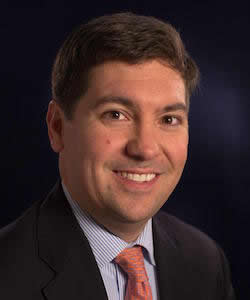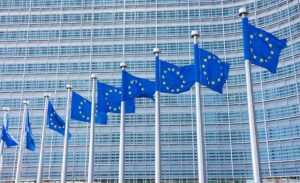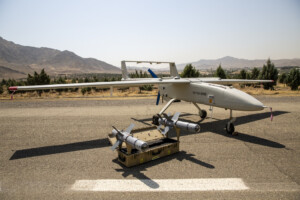Secret financial network of Sudan’s main militia exposed
The Rapid Support Forces (RSF) militia set up by the regime of ousted president Al Bashir, has built up a vast business empire that has huge interests in many sectors of the Sudanese economy. Global Witness has published a report about the financial networks behind the RSF and their commander Lt Gen Mohamed Hamdan ‘Hemeti’.
 Rapid Support Forces (SUNA)
Rapid Support Forces (SUNA)
The Rapid Support Forces (RSF) militia set up by the regime of ousted president Al Bashir, has built up a vast business empire that captures not only a large part of the country’s gold industry, but has huge interests in many sectors of the Sudanese economy. The anti-corruption NGO Global Witness has published a report about the financial networks behind the RSF and their commander Lt Gen Mohamed Hamdan Dagalo ‘Hemeti’.
The Global Witness investigation started with bank and corporate documents that were originally published by satirical Sudanese online channel El Bashoum. El Bashoum described them as leaked from ‘support companies’ of the RSF. Other documents were obtained by Global Witness in the course of their own investigation.
Global Witness verified the documents using interviews, corporate records, and open source investigative methods including analysis of archived copies of ‘old’ websites. It concluded that the leaked documents are likely to be genuine.
Immediate family
The investigation reveals for the first time the mechanisms enabling the funding of the RSF. It also details the powerful grip Hemeti and his immediate family have over the finances of the militia.
The report, subtitled The money behind Sudan’s most powerful militia, shows that the El Junaid gold company is owned by three members of the Dagalo family: Hemeti’s brother Abdelrahim Hamdan Dagalo, and Abdelrahim ‘s two young sons. According to the document, Hemeti himself is on the Board of Directors. The company’s spokesperson claimed that Hemeti had ended his formal role in the company in 2009.
El Junaid and the RSF appear to be deeply intertwined. Abdelrahim Dagalo is widely reported to be the deputy head of the RSF. He is also alleged to be partly responsible for the June 3 massacre. The BBC reported an interview with an anonymous RSF officer that “an Abdelrahim Dagalo” gave the order to clear the Khartoum sit-in – although the BBC was unable to independently corroborate this claim.
Another key element of the RSF’s income is payment for the provision of mercenaries that fight on behalf of Saudi Arabia in Yemen.
Front companies
Two RSF uses two front companies, the small information technology and security company GSK that is based in Sudan, and Tradive General Trading LLC, based in the UAE. Tradive is funnelling tens of millions of dollars in to and out of the RSF, at least partly in order to obscure the involvement of the militia. Hemeti’s brother El Joney Hamdan Dagalo is a director and an ultimate beneficial owner of Tradive.
According to a leaked spreadsheet several payments were made by the RSF to (or on behalf of) El Joney Hamdan Dagalo directly, or to a network of his friends and acquaintances who are named in an archived copy of the GSK website as GSK staff members.
In total, the RSF seems to have paid over 9 million dirhams (US $2.5 million) to companies overseas via a network of procurement agents in countries including the UAE, Rwanda, Malaysia, and China. Individuals within the network also made visits to Germany, Russia, and the Netherlands, countries to which the spreadsheet shows substantial transfers.
The leaked RSF spreadsheet published by El Bashoum also reveals how the RSF bought a fleet of almost one thousand Toyota pick-up trucks – easily converted into highly mobile ‘technicals’ (armed desert vehicles) by welding mounted machine guns on to the back. These vehicles have been used by the militia to suppress popular uprisings around the country for over a decade.
The same leaked RSF spreadsheet describes how the militia received over 150 million UAE Dirham ($40 million) ‘for technical support’ from an unknown source, and used over 111 million Dirham ($30 million) of that to purchase the vehicles and communications equipment from dealers in the UAE.
Not under control
The leaked bank documents appear to show that the Rapid Support Forces hold an account under their own name at the National Bank of Abu Dhabi (now part of First Abu Dhabi Bank). This provides evidence of the financial autonomy of the RSF. It suggests that the RSF is not under the financial control of the military, let alone the civilian elements of the power-sharing Sovereign Council.
According to Global Witness it is crucial to ensure civilian oversight of the military spending, and to give the Sudanese people greater control of their own natural resources, which at the moment are dominated by RSF and other security forces within Sudan. “Hemeti sits at the apex of a ‘paramilitary-industrial complex’. He controls both a large powerful military force, and an independent source of wealth”, the reports asserts.
Global Witness concludes that unless Hemeti is removed from this dual position, and all military forces are brought under civilian strategic and financial control, he is an obstacle to the transition to civilian and democratic government that many in Sudan yearn.
The report brings into memory that RSF commander Hemeti grew up in a camel herding and trading clan in Darfur. He first rose to prominence in 2003 as one of the leaders of the janjaweed, which is the local name for paramilitary forces deployed by former Sudanese president Omar Al Bashir to suppress the insurrection in Darfur.
The janjaweed displaced millions and played a dominant role in a conflict in which an estimated 300,000 civilians were killed. This led to an investigation by the International Criminal Court (ICC). Hemeti was enough of a prominent figure as to feature in the ICC Prosecutor’s application for an arrest warrant for President Al Bashir for genocide, crimes against humanity, and war crimes.
As violence again intensified in Darfur in 2013, Hemeti led the newly-formed Rapid Support Forces incorporating thousands of former Janjaweed fighters. Hemeti and the RSF subsequently profited through their takeover of the Jebel Amer gold mines in Darfur. The RSF’s provision of mercenaries to fight in Yemen, reportedly paid for by the UAE, also offered a source of revenue.
$1bn pledge
The RSF were rich enough for Hemeti to pledge over $1bn to help stabilise the Sudanese Central Bank in the aftermath of the economic crisis and protests which led up to the ousting of President Bashir in April 2019.
At that time Hemeti claimed: “We put $1.027 billion in the Bank of Sudan… the funds are there, available now” and that the RSF “supported the state at the beginning of the crisis by buying the essential resources: petrol, wheat, medication.” He went on: “People ask where do we [the RSF] bring this money from? We have the salaries of our troops fighting outside [abroad] and our gold investments, money from gold, and other investments.”
Global Witness is an independent, not-for-profit organisation that protects human rights and the environment by confronting corruption and challenging the systems that enable it. It was founded in 1993, has over 100 staff, and offices in London, Washington DC and Brussels, along with a global network of partners and allies.
Radio Dabanga’s editorial independence means that we can continue to provide factual updates about political developments to Sudanese and international actors, educate people about how to avoid outbreaks of infectious diseases, and provide a window to the world for those in all corners of Sudan. Support Radio Dabanga for as little as €2.50, the equivalent of a cup of coffee.










 and then
and then